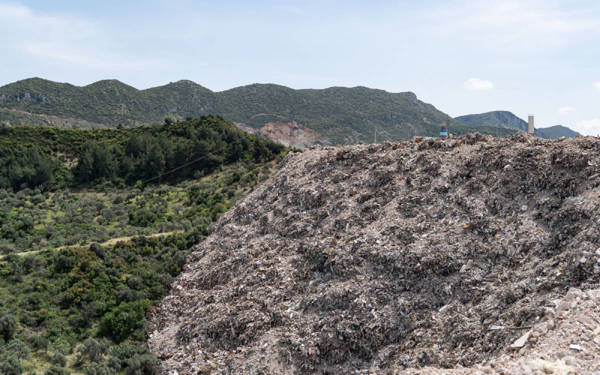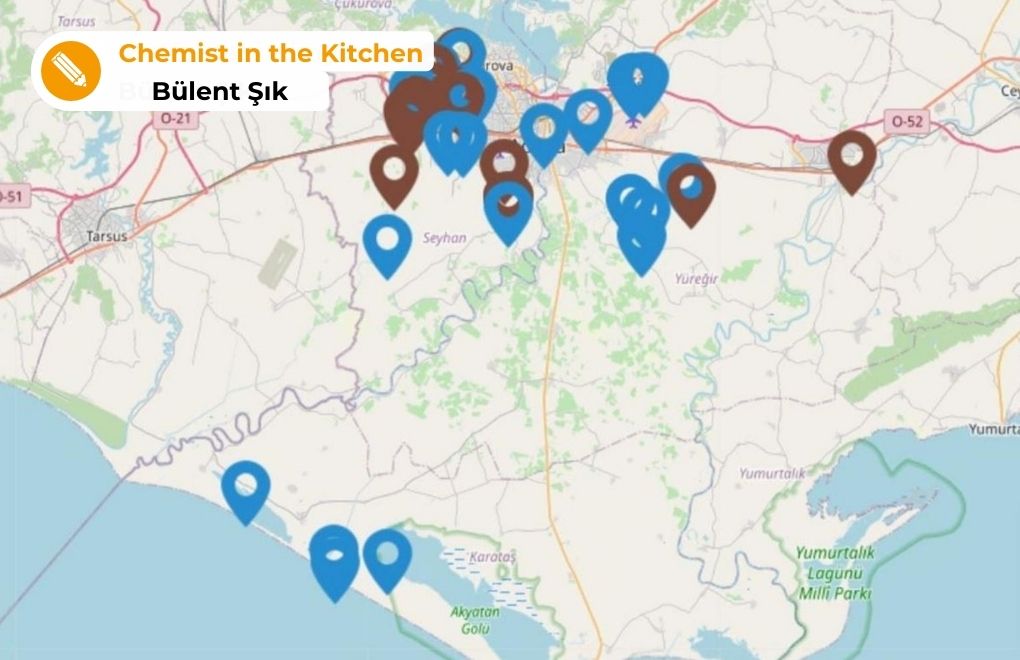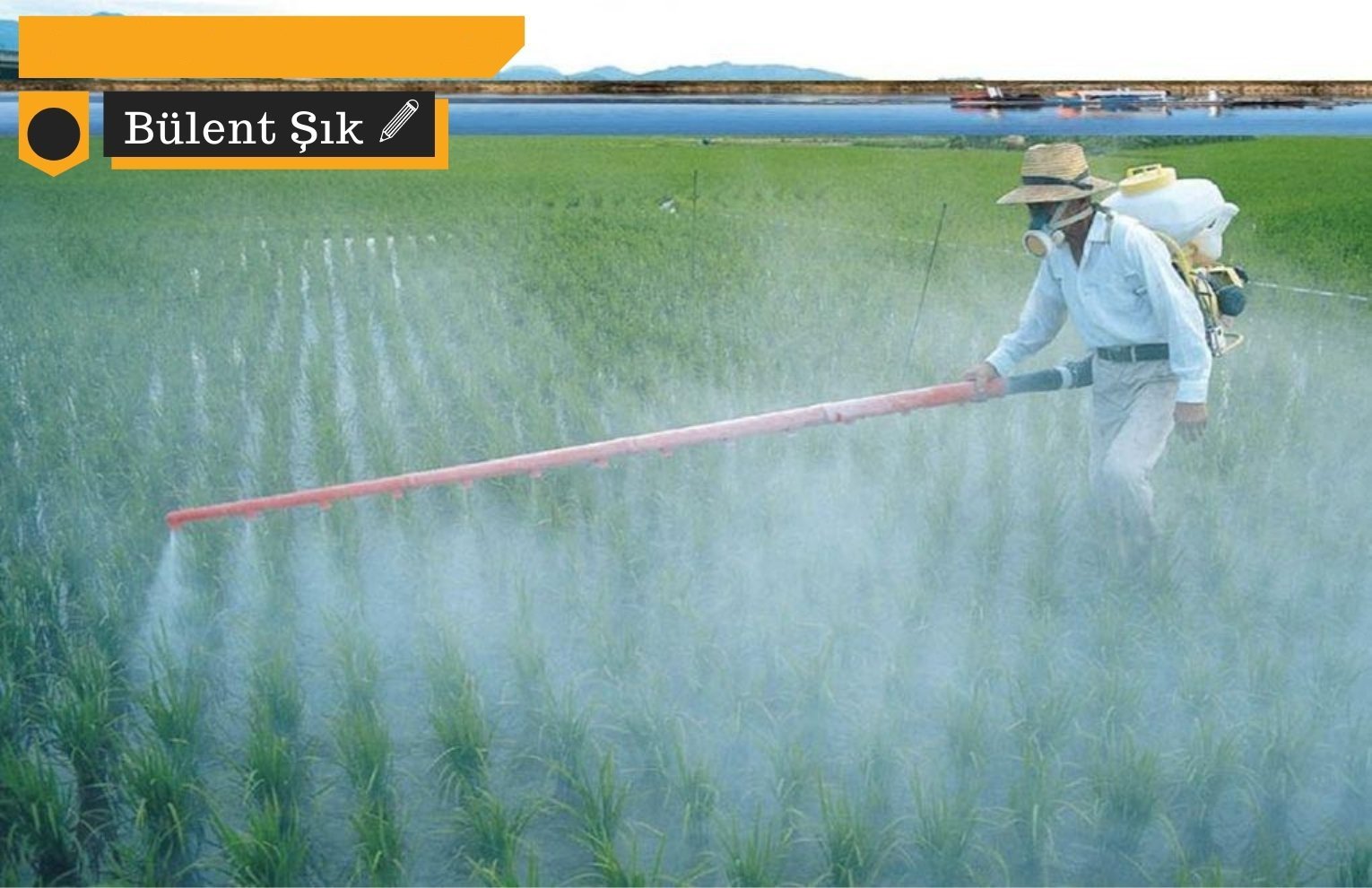(The records of agricultural toxins detected in products exported from Turkey. Red: Samples with residues of chlorpyrifos. Blue: The total number of export samples with residues of agricultural toxins.)
Click to read the article in Turkish
Turkey will celebrate Children's Day only in a few days' time, on April 23, 2022. In our country, where the use of toxic chemicals detrimental to child health cannot be prevented in some way, words will be uttered once again to express how valuable children are...
Are children really valuable?
There are various types of violence that this country deems its children worthy of, but the least known type of violence or the one that is the hardest to make visible is the violence stemming from subjecting children to toxic chemicals. The effects of this violence faced in the babyhood and childhood extend over the entire lives of children. A child's entire physical, mental and intellectual capacity to lead a healthy life is negatively affected.
In works and efforts made to protect children for the past 10 years, one of the toxic chemicals on the global agenda has been the chlorpyrifos. This toxic substance has two different chemical structures: Chlorpyrifos Ethyl and Chlorpyrifos Methyl. Both are highly detrimental to child health. These toxic substances have been in use in our country's agriculture for years.
The Ministry of Agriculture and Forestry banned the use of Chlorpyrifos Ethyl on May 21, 2020 and that of Chlorpyrifos Methyl on December 31, 2021. The decision to ban may sound like a good decision. But when you know what happened before this ban was imposed and the sheer carelessness starting from 2016, you will change your mind about this.
The use of Chlorpyrifos Ethyl was in fact ended in our country in 2016, as in the European Union (EU) countries. However, in the next 6 years, the Ministry of Agriculture never implemented this ban. Moreover, in a decision taken later on, it prolonged the use of Chlorpyrifos Ethyl until May 21, 2021. And the use of Chlorpyrifos Methyl was extended by the end of 2021.
The latest decision of ban did not work, either; it remained on paper. The ministry was once again unable to fulfill its responsibility to protect public health: Chlorpyrifos Ethyl and Chlorpyrifos Methyl are among the leading toxic chemical substances detected in the food products exported from our country to the EU countries.
In the pesticide or agricultural toxin tests conducted in the EU countries between January 2022 and April 11, 2022, 180 improprieties were identified. 67 percent of them were about Chlorpyrifos.
So, 2 out of every 3 food products exported from Turkey and turned down by EU countries following the border checks due to pesticide residues had Chlorpyrifos Ethyl or Methyl residues. The products with Chlorpyrifos residues are grapefruits, lemons, oranges, mandarin oranges, quinces, tomatoes, green peppers, capia papers and pomegranates.
These numbers are indeed worrying, considering that it means the products consumed in our country's domestic market also have Chlorpyrifos residues. The question of what happens to the products turned down while being exported should also not be put aside.
Chlorpyrifos Ethyl and Methyl are toxic chemicals that are described as substances that cause neurological development disorders in children. They have a negative effect on the neurological system and brain development of children and cause deterioration in cognitive abilities.
Compared to adults, children are more susceptible to the negative effects of toxic chemicals. This susceptibility decreases as one ages.
Children eliminate toxic substances from their bodies in longer periods of time when compared to adults. For instance, the level of Chlorpyrifos Ethyl in an adult's blood may drop in 6 hours. But, in children, this period is 36 hours. (1) This finding suggests that children are subjected to the detrimental effects of Chlorpyrifos for six times longer than adults do.
It is not difficult for the Ministry of Agriculture and Forestry to take these toxic substances off the shelves and prohibit their use. However, apparently, as the interests of the groups who produce and trade in these toxic substances weigh heavily, the ministry does not take steps to solve this issue that closely concerns child health. The fact that the products exported from our country have so much Chlorpyrifos toxin is the most important evidence of this.
I am of the opinion that the Ministry of Agriculture and Forestry commits the crime of harming child health by not taking protective measures in the face of Chlorpyrifos toxin use for years. The question is now how this crime can be prevented. (BŞ/APK/HA/SD)
NOTE: It is in fact not a new question why the agricultural toxins called Chlorpyrifos Ethyl and Chlorpyrifos Methyl, which are extremely detrimental to child health, are still in use or why the public institutions obliged to protect child health, the Ministry of Agriculture and Forestry and Ministry of Health do not take the necessary steps about this. These questions have been around for years. I wrote a lot about Chlorpyrifos for bianet before. The details about the issue extending over years can be found in this article (in Turkish).
(1) Philip J. Landrigan and Mary M. Landrigan, 2018. Children and Environmental Toxins, Oxford University Press, Page 29.








.jpg)

.jpg)